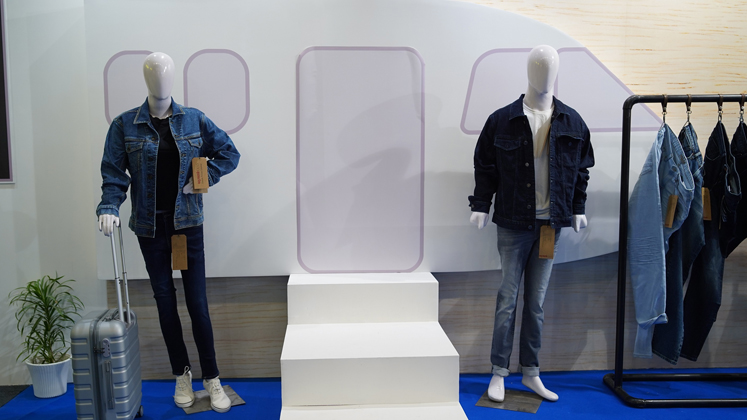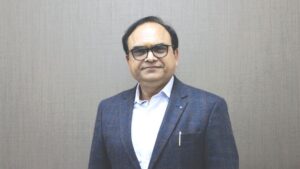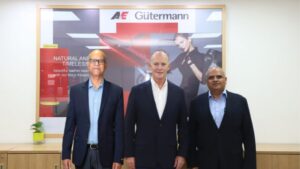
With a capacity of approximately 1.6 billion metres per annum, India is the world’s second-largest producer of denim fabric after China.
As one of the fastest recovering market segments post the pandemic outbreak, the denim industry is pegged to showcase a sustainable growth rate of 12 per cent CAGR.
Last few years have redefined the textile industry with the denim sector going through a big revamp in terms of the fits and fabric constructions. While a significant portion of womenswear denim has hauled from high stretch fabrics to more of comfort stretch and rigid classic 80s denim, fits as well moving from skinny to more relaxed and flared, menswear denim, on the contrary, is edging towards comfort to stretch fabrics with clean and basic washes.
Hand-feel plays an important role for all segments, which implies the need of superior spinning techniques, finer counts and blends.
Overdyed, tinted and coloured jeans are some of the key fashion products continuing from last few seasons.
LNJ Denim, one of India’s top denim fabric manufacturers, is of the opinion that the domestic market is still dominated by faux knit fabrics, but with recent escalations in the cost of key ingredients, the company expects a shift towards more classic and authentic denim, but with superior hand feel and saturation.
In terms of shades, vintage and versatile pure indigos are back because of emphasis on clean and mild washes with raw look for basics, while distressed and bleached denim in the high fashion product for all genders and age groups.
Gagandeep Singh, Secretary General, Denim Manufacturer Association’s (DMA) says, “The Indian denim industry has evolved significantly with ever-changing fashion trends making its way into other utility-driven products.”
Indian denim brands are taking strong steps in a direction towards creating more responsible denim fabrics that reduces the gap between fashion and sustainability. These fabrics can be crafted into a luxurious and versatile garment collection for eco-conscious consumers.
Renowned denim player, Raymond UCO who is said to be reinventing excellence with its high-quality denim fabrics using recycled polyester from ocean-bound plastics and Blu 2.0: a unique indigo dyeing process.
The process involves recycling the ocean-bound plastics into fibres and blending with cotton to weave sustainable denims, reducing the freshwater consumption and effluent load in the dyeing process by about 85 per cent using BLU 2.0 process and using eco-friendly dyes like natural indigo to reduce the dependence on synthetic chemicals.
The brand is working on making responsible denim and has curated a special denim collection that offers ultimate comfort, breathability and moisture management while also being environment-friendly.
Sudhir Deorukhkar, Head of Marketing at Raymond UCO, says, “These are small steps in the right direction towards creating more responsible denim fabrics that reduces the gap between fashion and sustainability. These fabrics can be crafted into a luxurious and versatile garment collection for eco-conscious consumers.”
Raymond UCO has curated a special denim collection that offers ultimate comfort, breathability and moisture management while also being environment-friendly.
Ashish Bhatnagar, Marketing Head, LNJ Denim said, “With our commitment and responsibility towards the environment, sustainability is more of hygiene for us now with persistent developments and focuses across various functional stages of fabric process.”
The brand focuses on functional, sustainable and superior hand-feel denim fabrics made possible through various blends, spinning as well as finish innovations.
All above-mentioned and many more developments will be on display at the three-day Denim Show in Mumbai.
Also Read: Denim Show to showcase Indian denim industry prowess at the first Mumbai edition






